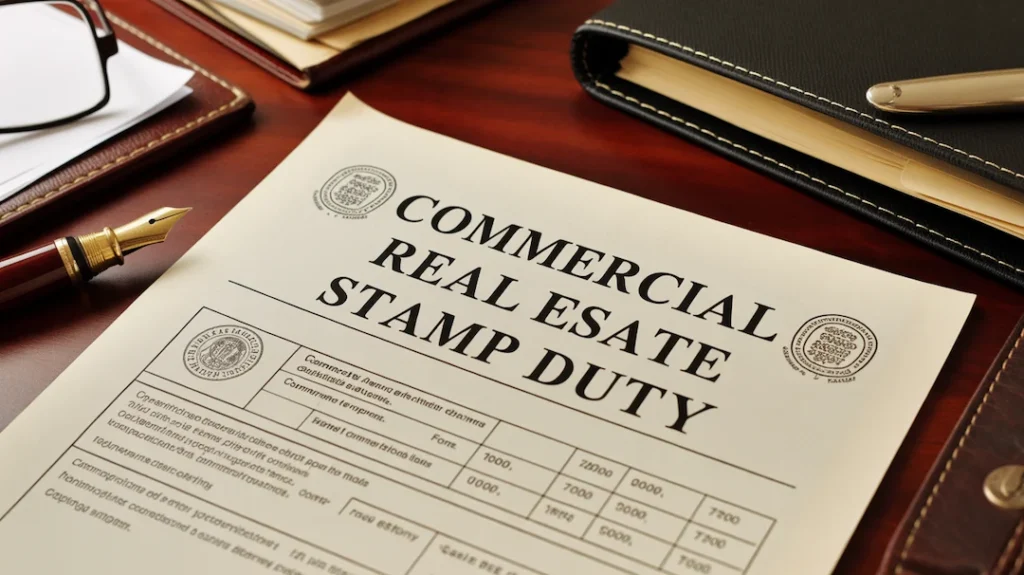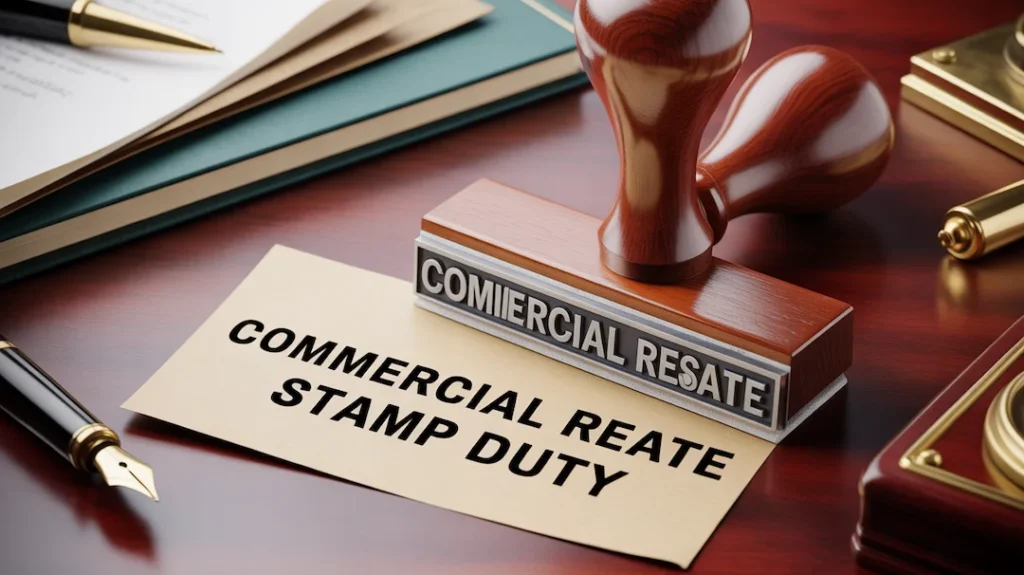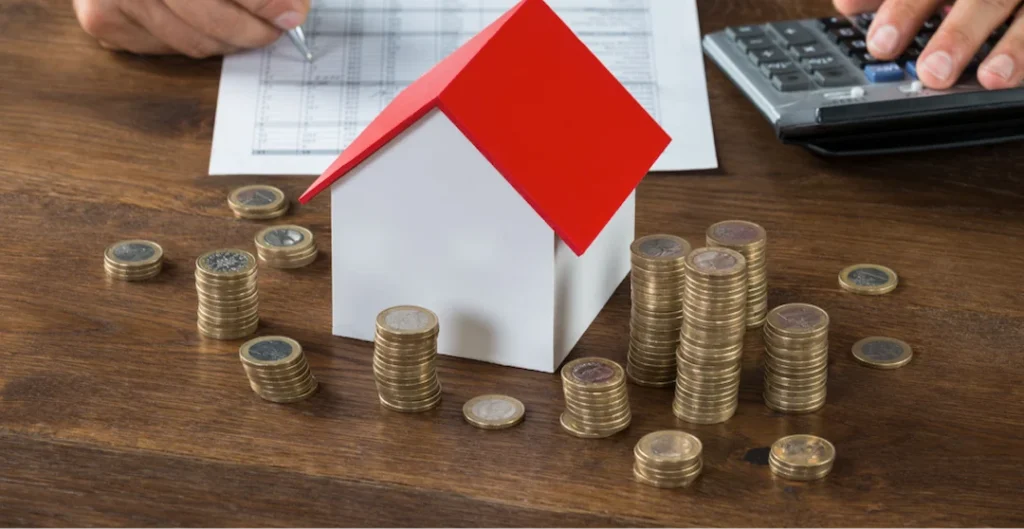Purchasing commercial property can be one of the smartest investments in real estate—especially for business owners or investors looking for long-term growth. However, one cost that many buyers overlook is commercial real estate stamp duty, a government-imposed tax paid during property transfer. Understanding how stamp duty works—and how to potentially reduce it—can save you thousands of dollars.
In this guide, I’ll explain commercial property stamp duty in simple wording, using real examples, practical tips, and insights I’ve learned from working in the real estate market.

Content
What Is Commercial Real Estate Stamp Duty?
Commercial real estate stamp duty is a tax charged by the government when a commercial property is sold or transferred to a new owner. This applies to properties such as:
- Office spaces
- Restaurants / retail units
- Warehouses and storage units
- Industrial and manufacturing units
Unlike residential property tax, stamp duty in commercial real estate often involves different property stamp duty rates, additional fees, and sometimes higher tax percentages.
In simple words:
Stamp duty is a mandatory cost you pay to legally register a commercial property under your name.
Why Do Governments Charge Stamp Duty?
Governments use stamp duty to:

- Verify legal ownership records
- Reduce fraudulent transfers
- Generate revenue for city development and infrastructure
Think of it as a formal “ownership registration fee.”
How Much Is Stamp Duty on Commercial Property?
Many people ask:
The answer depends on:
- Property price/value
- Location (state/country)
- Property type (retail, industrial, office, etc.)
- Purpose of purchase (investment vs. owner-use)
Stamp duty is usually calculated as a percentage of the property purchase price.
Example formula:
Stamp Duty = (Property Value × Stamp Duty Rate%) + Registration Fees
Different states or countries have different government stamp duty regulations, so always check local laws.
What Influences the Stamp Duty Cost?
Here’s what affects your final stamp duty amount:
| Factor | Influence |
|---|---|
| Property price | Higher value → higher stamp duty |
| Property location | Urban/commercial hubs often cost more |
| Building type | Industrial properties sometimes get exemptions |
| First-time investor | Some countries offer lower stamp duty |
Remember, when buying commercial real estate, stamp duty isn’t the only fee—you may also have legal and registration charges.
Real-Life Case Study: How One Investor Saved $18,500 on Stamp Duty
Case: Mark — Small business owner investing in a warehouse
Mark wanted to purchase a 5,000 sq. ft. warehouse priced at $850,000.
Initial estimated stamp duty: $42,500
(Using standard commercial property stamp duty rates)
However, his real estate advisor noticed:
- The warehouse was located in a zone eligible for business development incentives
- The property was being purchased for business use, not investment
Mark applied for a stamp duty exemption on commercial real estate through a business-development tax incentive program.
Final stamp duty paid: $24,000
Mark saved $18,500 simply by knowing the rules.
This shows how stamp duty exemptions for commercial real estate can significantly reduce purchasing costs.
Can You Reduce or Avoid Stamp Duty?
Yes—there are legal ways to reduce stamp duty. Here are common strategies used by investors:

1. Check Government Concessions and Exemptions
Some regions offer exemptions for:
- First-time commercial buyers
- Small business owners
- Properties in development zones
Search your area’s stamp duty exemptions for commercial real estate.
2. Purchase Under a Business Entity
In some countries, buying through:
- A registered company
- A trust
- A partnership
…may reduce stamp duty or allow tax write-offs.
3. Negotiate the Property Value
If you reduce the purchase price, you automatically reduce the stamp duty amount since it’s percentage-based.
4. Consider a Long-Term Lease Instead of Buying
Leasing a property with an option to buy later can delay or reduce stamp duty costs—especially for new businesses.
Investment Property Stamp Duty vs. Commercial Use Stamp Duty
Many buyers misunderstand this difference:
| Purpose | Stamp Duty Treatment |
|---|---|
| Investment property stamp duty | Often taxed at standard commercial rates |
| Owner-operated business | May qualify for incentives or concessions |
If you’re using the property to run a business, you may have more deductions and benefits.
Expert Tips From Experience
As someone who has assisted multiple clients in buying commercial real estate:
✔ Always calculate stamp duty before making an offer
✔ Ask your accountant if stamp duty can be claimed as a business deduction
✔ Compare real estate tax obligations in nearby zones—moving one street over can change the rate
Final Thoughts
Buying commercial property is an exciting step toward financial growth. But ignoring commercial real estate stamp duty can lead to unexpected costs.
When planned strategically, stamp duty becomes just another business investment expense—not a financial burden.
Key takeaways:
- Know your commercial property tax rules
- Understand your region’s government stamp duty regulations
- Explore stamp duty exemptions for commercial real estate
- Calculate stamp duty early to avoid surprises
With the right knowledge—and sometimes the right advisor—you can reduce costs and keep more money in your investment budget.
Quick FAQ
Is stamp duty refundable?
No, stamp duty is usually non-refundable.
Can stamp duty be paid in installments?
In some countries, yes—especially for first-time business buyers.
Is stamp duty higher for commercial than residential?
Often yes, because commercial property generates income.

With a sharp eye for design and a passion for renovation, Samantha transforms fixer-uppers into dream homes. Her expertise in remodeling adds extra value to your real estate experience.




